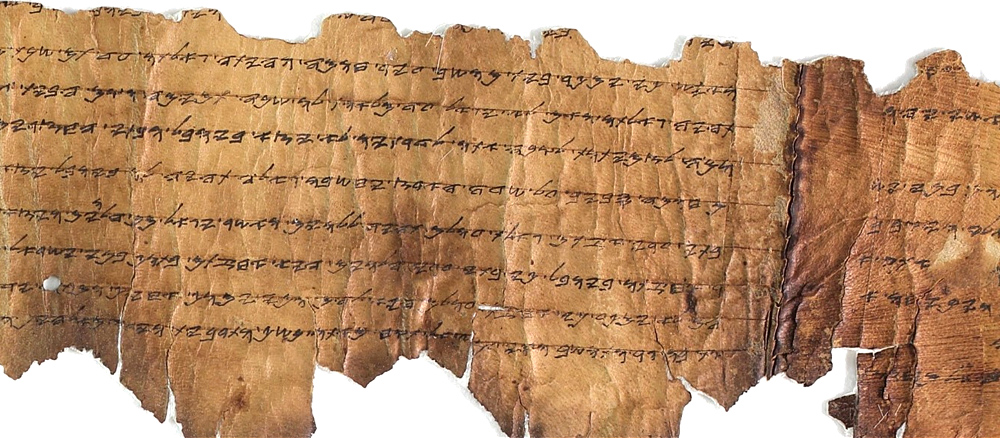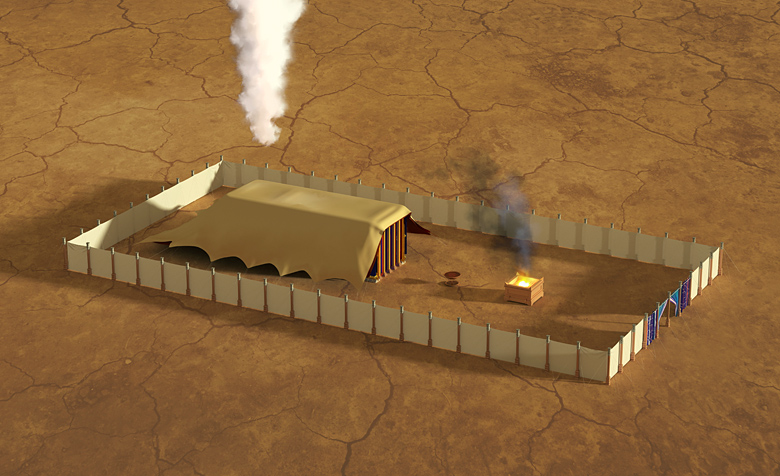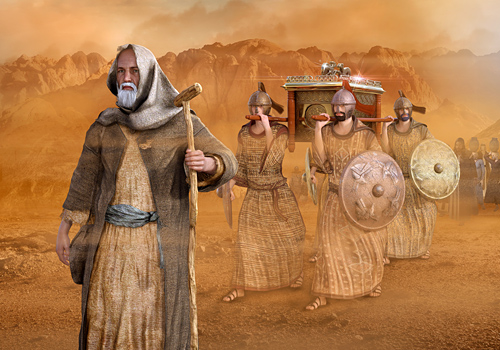Introduction to the Book of Leviticus
This page is an introduction and summary for the book of Leviticus in the Christian Bible. (Leviticus is also in the Jewish Bible, but I'll be covering it from a Christian perspective).
I'm doing several new pages on the first five books of the Bible (the books of Moses, also called the Pentateuch), and the "former prophets" which are the books of Joshua, Judges, 1&2 Samuel and 1&2 Kings.
I'll be working on these new pages in parallel as I study for my Old Testament exam on the 10th of June, and adding to them as I study. I figured I might as well be writing my study notes up online as web pages, since now that this website is set up, it's not that much harder than just doing them in a Word document (or something like that).
Introduction to Leviticus
Leviticus (pronounced lev-IT-ick-uss) is the third book of the Bible, and the middle book of the Pentateuch (the five books of Moses). The Levites were one of the 12 tribes, the descendents Levi. They were the priests. So the book of Leviticus is sometimes called the Book of the Priests. It contains a lot of laws and is also sometimes called the Book of Laws (though Deuteronomy is also sometimes called the "Book of Law"). It's title in the Hebrew Bible is "And He Called", where "He" means YHWH, the Lord God calling to Moses out of the "Tent of Meeting", also called the "Tabernacle". A digital rendering of the Tabernacle is shown in the cover photo of this page. It was basically a portable temple, which the Israelites could carry around as they travelled through the desert, from Egypt (which they left in the Book of Exodus), until arriving in the promised land of Caanan (which is approximately the region of modern Israel and Palestine).
Before Reading or Studying Leviticus
Before reading or studying the Bible, it's a good idea to take a short break — to think about where the book of Leviticus came from, and how it's relevant to your own modern life right now. Christians believe that the Bible is the inspired Word of God. That is, the words in Leviticus were recorded by people in the distant past, as given to them by God.
Also, the Bible is a living document — it's the living word of God. This is a foreign concept to most of our modern culture today, so it takes some time to think about, and get used to the idea of it. Many people think of God as not speaking directly to us. Yet as Christians, God does speak to us directly, in words — and the way God does this is through his words in the Bible. This means that it's directly relevant to us, personally, as we read it. As you read the words of Leviticus (even if you don't really believe in this kind of stuff yet, you can still try doing this, as an experiment), imagine that God is speaking to you, personally, and directly.
Also, the Bible is an ancient document. It's very old — and the first few books of the Old Testament, especially so. A lot of things have changed since God's words were first recorded by humans. This means a lot of the Bible can be hard to understand in our modern world today. Which is why we're so lucky to have so much access to resources that can help us to understand it. As you read the words of Leviticus, also imagine that you're back then, in the days when it was written. This can help a lot with understanding the meaning (of some parts of the Bible more so than others). Learning about what the words meant in their original setting is a really good place to begin trying to understand what they mean now. Keep this idea in mind as you read the rest of this web page, and as you read the Bible.
Also, the Bible is a precious document. Its true value is hard to imagine. It's probably fair to say that nearly everyone today underestimates its value — at least in the free and well-off countries, where it's very easy (and cheap) for anyone to obtain a copy of the Bible, or read it on the internet. To help get a better appreciation for the value of the Bible, think about how God's word has travelled down through the centuries, and been preserved by copyists, translators, printers, and other people. At times parts of it were lost, and then found again. In recent years, thousands of ancient copies of scrolls have been found, which were meticulously copied by hand over and over, for thousands of years. In some places and at some times, to own a copy of the Bible (or even to believe in it) would bring the death penalty. This included many of those who wrote parts of it, or were written about in it (such as the Apostles of Jesus).

Close-up of paleo-Hebrew Leviticus scroll, now at the Israel Antiquities Authority in Jerusalem. Source: Wikipedia.
Interesting Facts About Leviticus
- No other book in the Bible (apart from maybe Jeremiah) itself states so often that it's the Word of God. Over and over again it mentions how God himself spoke to Moses.
- Leviticus contains a lot of laws, many of which seem quite bizarre by today's standards.
- Levitucus is an underrated book in modern times, as many Christians assume that the laws are no longer relevant since Jesus has superceded them. However, Leviticus is key in understanding the reason for Jesus' sacrifice, and many other things about the New Testament.
- Leviticus, Exodus, and Numbers go together and are meant to be read as consecutive works.
- The Laws of Moses as written in Leviticus may seem harsh by today's standards, but by the standards of the Ancient Middle East (and most very Ancient Civilisations), they were comparatively quite gentle.
- An important purpose for the laws was so that the people of God would be differentiated from the other peoples of the world. So it will be known among the nations that these are God's people, by the different way that they live. This applies just as much to modern Christians, though many of the laws and conditions themselves have changed since the days of the Old Testament, many of them have not changed.
- Many people consider the Old Testament (and especially these laws) as being about "works", in the sense of something you have to do for God to save you, and contrast this to the New Testament, which is about "grace", meaning that if you believe in Jesus, God will just save you no matter what you do. However there is far more similarity between the two testaments than that view (which makes them seem like opposites). The first thing that happens in the story of Exodus to Numbers is that God rescues his people out of slavery in Egypt. God does this because he loves his people, and has chosen them to be his people and to have a close and priveleged relationship with them. The laws are then given as something to be done in response to them being already saved (out of slavery in Egypt) by God's grace. Not something they have to do first in order to be loved and/or saved by God.
Read Leviticus
Click here to read the book of Leviticus.
Click here to see Leviticus in its original language of Ancient Hebrew. Or here to read Leviticus in Hebrew and English side-by-side.








